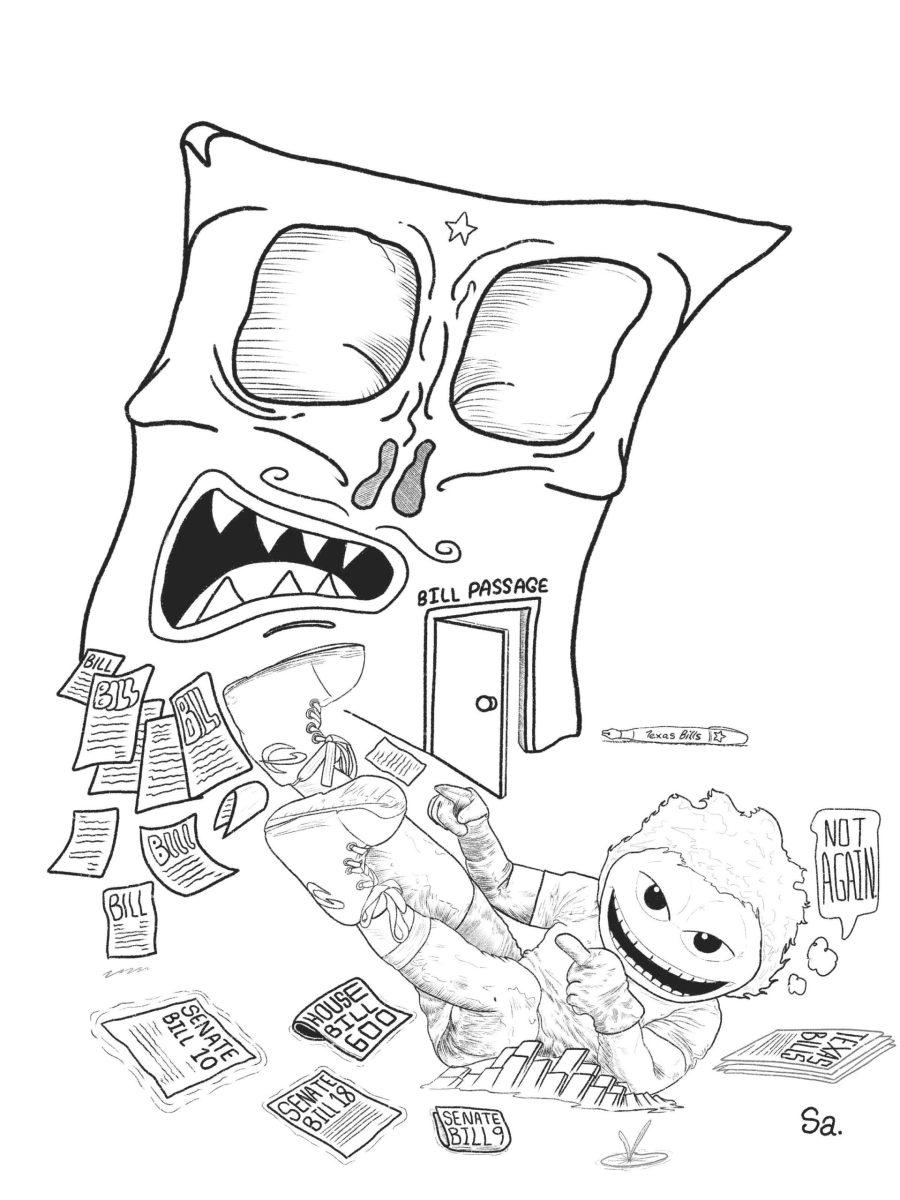Texas lawmakers in Austin have introduced a series of bills that could affect university funding, minority groups and higher education.
Restrictions on transgender athletes, bans on certain foreign citizens attending college, bans on election polls on campus, improving mental health, ending tenures and improving teacher retirement plans are just a few of the bill topics making headlines.
While UTD does not currently have any transgender student athletes, Senate Bill 15 proposes that all current and future athletes attending public universities must compete in teams aligning with the sex they were assigned at birth. The bill follows new guidelines from the National Collegiate Athletes Association, or NCAA, saying female athletes cannot exceed a certain testosterone level. SB 15 also runs alongside other anti-transgender bills in Texas, including the very similar “Save Women’s Sports” act that will affect all public institutions and the recently-passed Senate Bill 14 that will ban minors from transitioning on taxpayer money and prevent mental health professionals from endorsing their transition. SB 15 requires that the university pay a fee if caught violating this rule. It also, however, proposes that all public universities will must allow female students to compete in equal intercollegiate competitions designed for men if an alternative is not already offered.
Senate Bill 15, which was passed March 29, has over 18 authors and is supported by Gov. Greg Abbot, who said that transgender women hold an unfair biological advantage in sports compared to cisgender women.
“We’ve fought for the rights of women to be able to succeed in the world, only to have that now superseded by this ideology that men are going to be empowered to compete against women in things that should be protected by federal law, state law,” Abbot said.
Another bill that has racked up controversy is House Bill 4736, which prevents international students from China, Iran, North Korea or Russia from enrolling in a public school. Additionally, the bill proposes that citizenship will no longer be obtainable even if they graduate high school after living in Texas for three years. This bill would apply to H1B Visa Holders, students and refugees, and it parallels Senate Bill 147, which was endorsed by Abbott to prevent foreign citizens from buying land. While the bill has a low chance of passing and has only been referred to State Affairs so far, its proposal has sparked concern for several groups.
Meanwhile, House Bill 2390 and House Bill 4465 propose a bill that prohibits schools from hosting polling sites. Both bills claim their goal is to keep outsiders off campuses during voting days. However, critics point out that the bills would create added difficulties for students to exercise their voting rights and target locations often associated with Democrat turnout.
The bill was referred to Elections on March 21 for HB 2390, but the author of both bills, Representative Carrie Isaac, is adamant that these bills will protect students.
“There’s a lot of opportunity there for people to be places they shouldn’t be,” Isaac said. “I just know in this session, this is going to be a topic we cover intensely, school safety. I just believe these are a couple areas we can improve on.”
Another bill following Uvalde is House Bill 13, which encourages teachers to undergo training to identify individuals with mental health issues that could pose a school shooting risk. Additionally, campuses will have to prepare an active shooter plan if one is not already in place, and the budget allotment for student safety will increase to $100 per student.
HB 13 would accompany an increase funding for the Texas Child Mental Health Care Consortium for school-based telehealth care, which came after Texas Children’s Hospital reported an 800% increase in mental illnesses late last year. UTD is expected to be one of the institutions providing health care professionals to address the growing mental health crisis, with Congress funding a telehealth care program at UTD last year. HB 13 was left pending on March 27 in the Texas House Select Committee on Youth Health and Safety.
While these bills primarily affect university students, faculty and staff can also expect changes. Senate Bill 18 would effectively end the tenure program starting Sept. 1 if passed. Critics argue that this bill would diminish the pool of quality faculty and would target critical race theory, which Lt. Gov. Dan Patrick has repeatedly expressed opposition to. Supporters point out that this bill removes a seniority hierarchy that has previously been abused and that it will allow more opportunities for younger educators. Meanwhile, House Bill 600, Senate Bill 9 and Senate Bill 10 are all expected to improve educator retirement plans and costs of living. Additionally, SB 9 would provide incentives for retired teachers to return to teaching and provide mentorship programs to help the next generation of educators.
As of March 30, SB 10 has been approved and passed. HB 600 has been voted favorably after amendments, SB 9 is awaiting vote results and SB 18 is pending under an education subcommittee.





